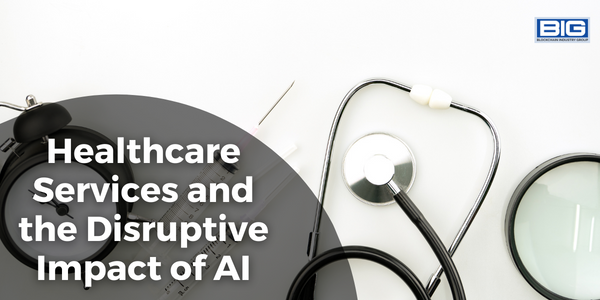
In recent years, artificial intelligence (AI) has been making rapid advances in many industries, and healthcare is no exception. The integration of AI into healthcare has the potential to revolutionize the way healthcare professionals work, providing them with new tools and technologies to improve patient care and outcomes. At the same time, however, it also presents significant challenges, as healthcare professionals adapt to new ways of working and navigate the complex ethical and legal considerations that come with the use of AI in patient care.
In this article, we will examine 10 areas where AI is having the greatest impact on healthcare professionals, detailing both the challenges and opportunities presented by these advances.
1. Diagnosis and Treatment Planning
AI algorithms can be used to analyze vast amounts of medical data, providing healthcare professionals with new insights and recommendations for patient care. For example, AI algorithms can be used to analyze imaging data, such as MRI and CT scans, to identify potential health issues and make treatment recommendations. This not only saves time and resources, but also provides healthcare professionals with new tools to improve patient care and outcomes.
2. Clinical Decision Support
AI algorithms can be used to analyze patient data, such as medical histories and lab results, to provide healthcare professionals with recommendations for patient care. This not only saves time and resources, but also provides healthcare professionals with new tools to make more informed and accurate decisions about patient care.
3. Electronic Health Records Management
AI is also having an impact in the realm of electronic health records (EHR) management. AI algorithms can be used to automate tasks such as data entry, data validation, and data analysis. This not only saves time and resources, but also improves the accuracy and completeness of patient data, which is critical for effective patient care.
4. Telemedicine
AI algorithms can be used to automate tasks such as appointment scheduling, telehealth visits, and remote monitoring. This not only saves time and resources, but also provides patients with more convenient and accessible healthcare options.
5. Clinical Trials
AI algorithms can be used to automate tasks such as patient recruitment, data collection, and data analysis. This not only saves time and resources, but also improves the accuracy and efficiency of clinical trials, which are critical for advancing medical knowledge and improving patient care.
6. Precision Medicine
AI algorithms can be used to analyze patient data, such as genetics and medical histories, to provide healthcare professionals with new insights into patient care. This not only saves time and resources, but also provides healthcare professionals with new tools to personalize patient care and improve outcomes.
7. Drug Development
AI algorithms can be used to automate tasks such as drug design, drug discovery, and drug testing. This not only saves time and resources, but also improves the accuracy and efficiency of drug development, which is critical for advancing medical knowledge and improving patient care.
8. Supply Chain Management
AI algorithms can be used to automate tasks such as inventory management, order management, and supply chain optimization. This not only saves time and resources, but also improves the efficiency and accuracy of supply chain management, which is critical for ensuring that healthcare professionals have the resources they need to provide effective patient care.
9. Patient Monitoring
AI algorithms can be used to automate tasks such as vital sign monitoring, medication management, and chronic disease management. This not only saves time and resources, but also provides healthcare professionals with new tools to monitor patients remotely, improving patient outcomes and reducing the risk of hospital readmissions.
10. Patient Engagement
Finally, AI is also having an impact in the realm of patient engagement. AI algorithms can be used to automate tasks such as patient education, patient outreach, and patient feedback. This not only saves time and resources, but also provides patients with more convenient and accessible healthcare options, improving patient engagement and outcomes.
Conclusion
The integration of AI into healthcare presents both challenges and opportunities for healthcare professionals. On the one hand, AI provides healthcare professionals with new tools and technologies to improve patient care and outcomes. On the other hand, it also presents significant challenges, as healthcare professionals adapt to new ways of working and navigate the complex ethical and legal considerations that come with the use of AI in patient care. It is important for healthcare professionals to stay informed about the latest developments in AI and its impact on their field, in order to best leverage these advances and continue to provide high-quality patient care.
A Brief History: Artificial Intelligence (AI)
—
AI and Robots: Future of Human Companionship?
—
AI Consultancy Services: Top 5 Ideas



